CAT ATTACK
Poorly supervised captive carnivores in South Africa are killing people
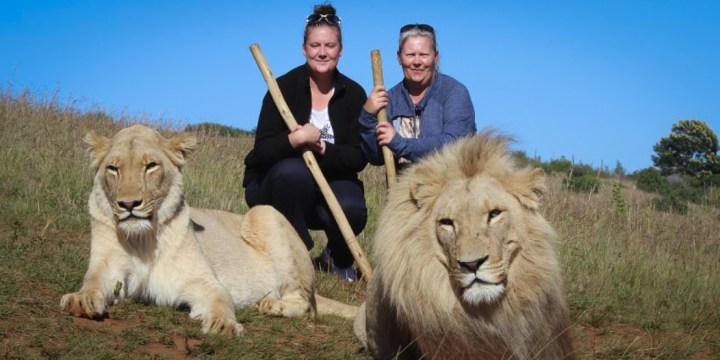
Carnivores are programmed to stalk and attack creatures and eat their flesh. They don’t change that instinct when in captivity, so it’s not surprising that they kill people – more than you might imagine.
Private facilities in South Africa hold an estimated 8,000 lions, 600 cheetahs and an unknown number of tigers. To care for them requires no qualifications and there’s no legislation governing how staff or tourists interact with them. A new study highlights the consequences.
Between 1996 and 2020, there have been 52 incidents in which 58 people were attacked by one or other of these predators, around a third being fatal. Most of the attacks (68%) and nearly all the fatalities were by lions. Fourteen of the attacks were on children.
According to a research paper just released, Biting the hand that feeds you, by *Kelly Marnewick and Louise de Waal, the numbers are conservative and derived from media and informal reports because there’s no legal requirement to report attacks. They are therefore most likely greatly under-reported.
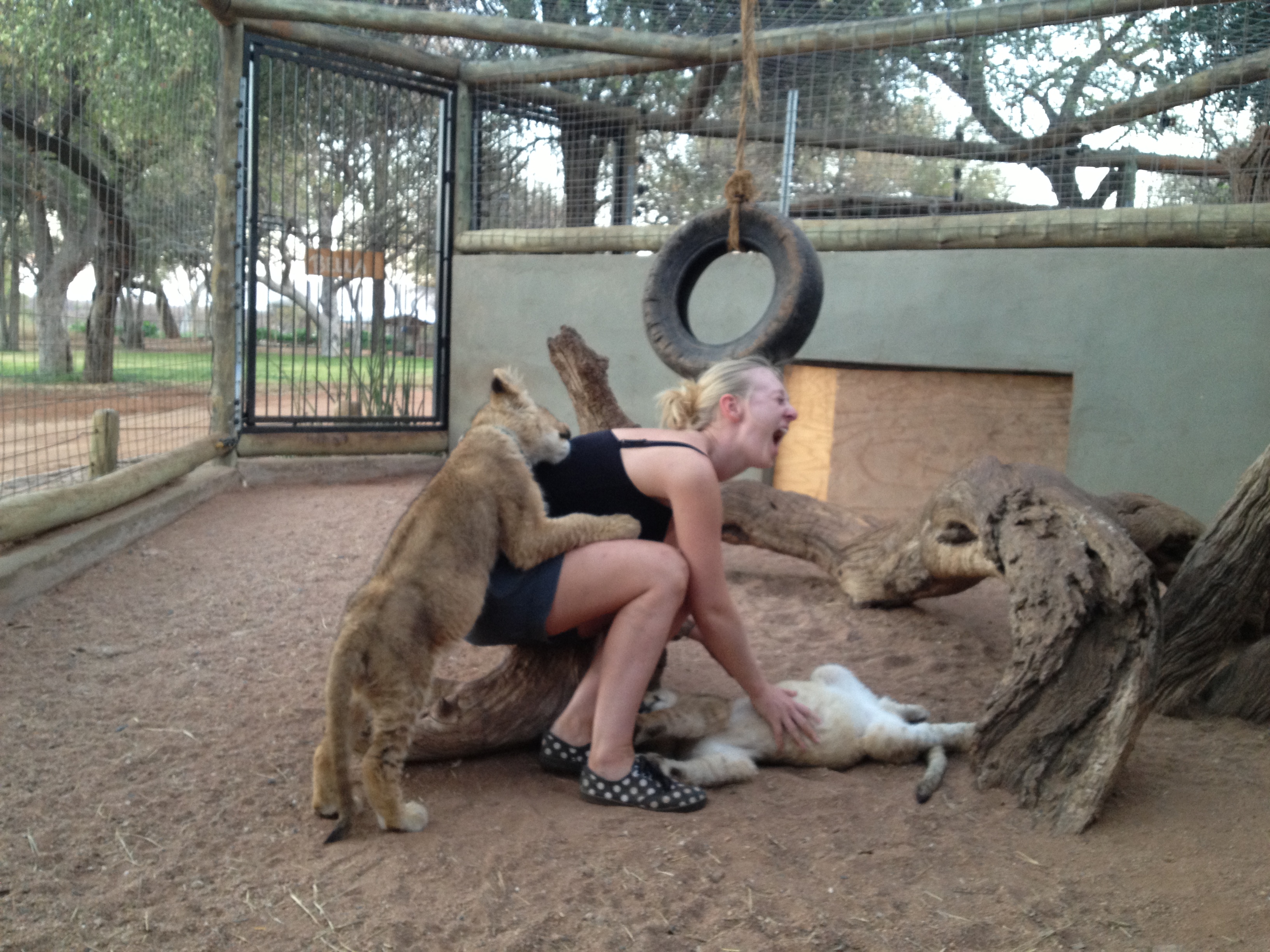
A ‘voltourist’ grabbed by a young lion. (Photo: Blood Lions)
Most attacks occurred while victims were inside the enclosures with the animals. Other attacks occurred through a fence where no secondary barrier prevented people from standing up against an animal separated by wires only, and seven occurred while inside a vehicle.
In the wild, attacks or deaths in South Africa are extremely rare. In large part, this is due to the training required by guides.
To conduct walking safaris with tourists in Big 5 wildlife areas, a Professional Trails Guide Certificate is required, which is obtained through the Field Guides Association of Southern Africa and accredited by the Tourism and Hospitality and Sport Education Training Authority.
This certificate involves intensive training, including 600 hours of experience, 300 Big 5 dangerous game encounters, advanced rifle handling skills and first aid qualifications.
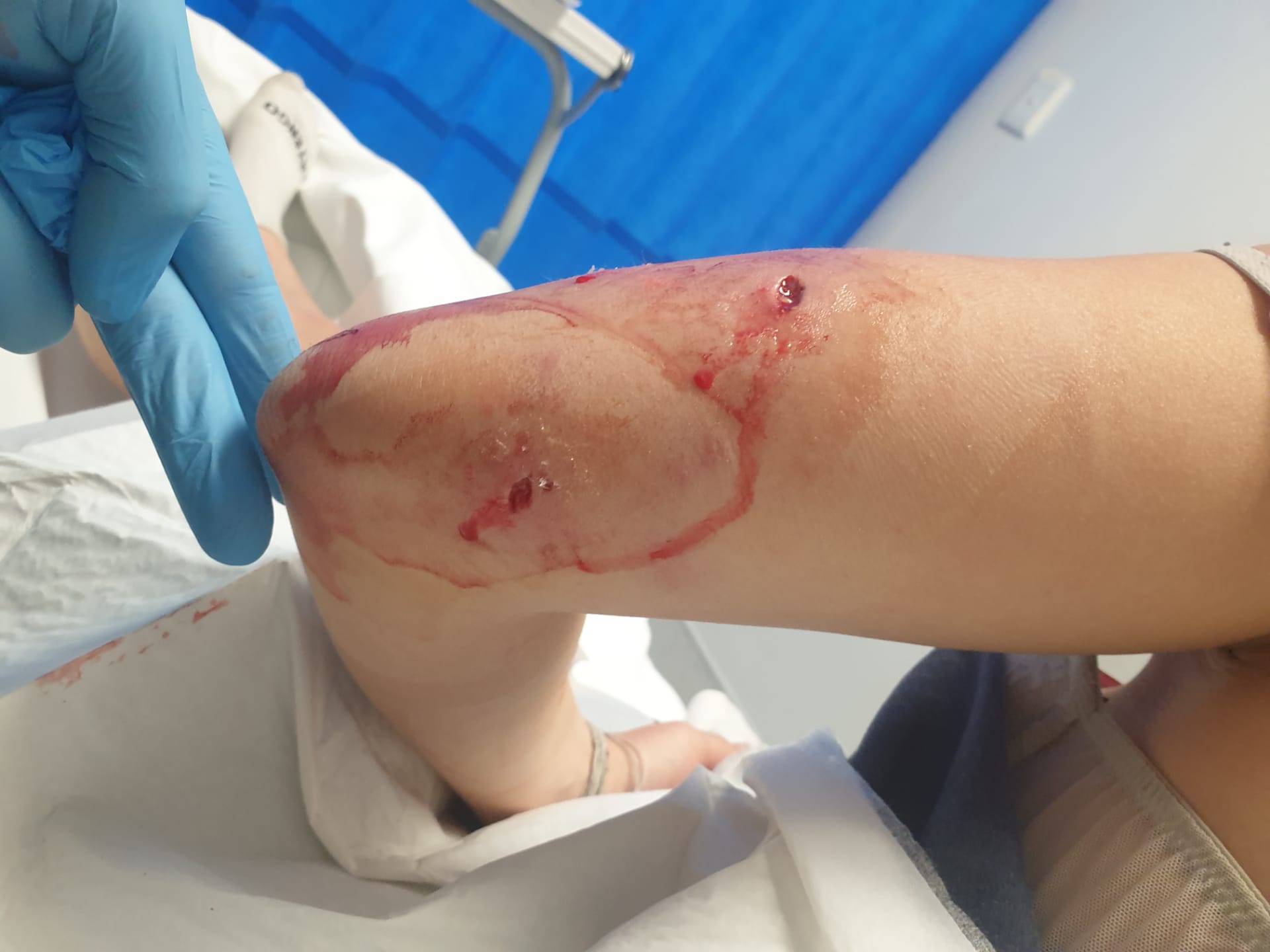
Amandine Lequime, a volunteer from Belgium, who was attacked by a cheetah at a captive wildlife facility in South Africa. (Photo: Blood Lions)
None of this is required by captive facilities. In practice, someone could be taken off the street and start working with dangerous carnivores the same day. This is extremely risky, says the report.
“Unlike domesticated pets that have lived in close alliance with humans for thousands of years, no matter whether large carnivores have been hand-raised and habituated, they remain wild with strong prey-drive and territorial instincts.”
The report estimates there to be 74 facilities in the country that hold carnivores, but no statistics on how many local or international visitors interact with them through petting, walking with them or being led into an enclosure containing a big cat.
More visitors than staff reported attacked
There are more reports of visitors being attacked than staff, though the report says that attacks on staff are likely to be even more under-reported. One facility was responsible for eight incidents resulting in six injuries and two deaths.
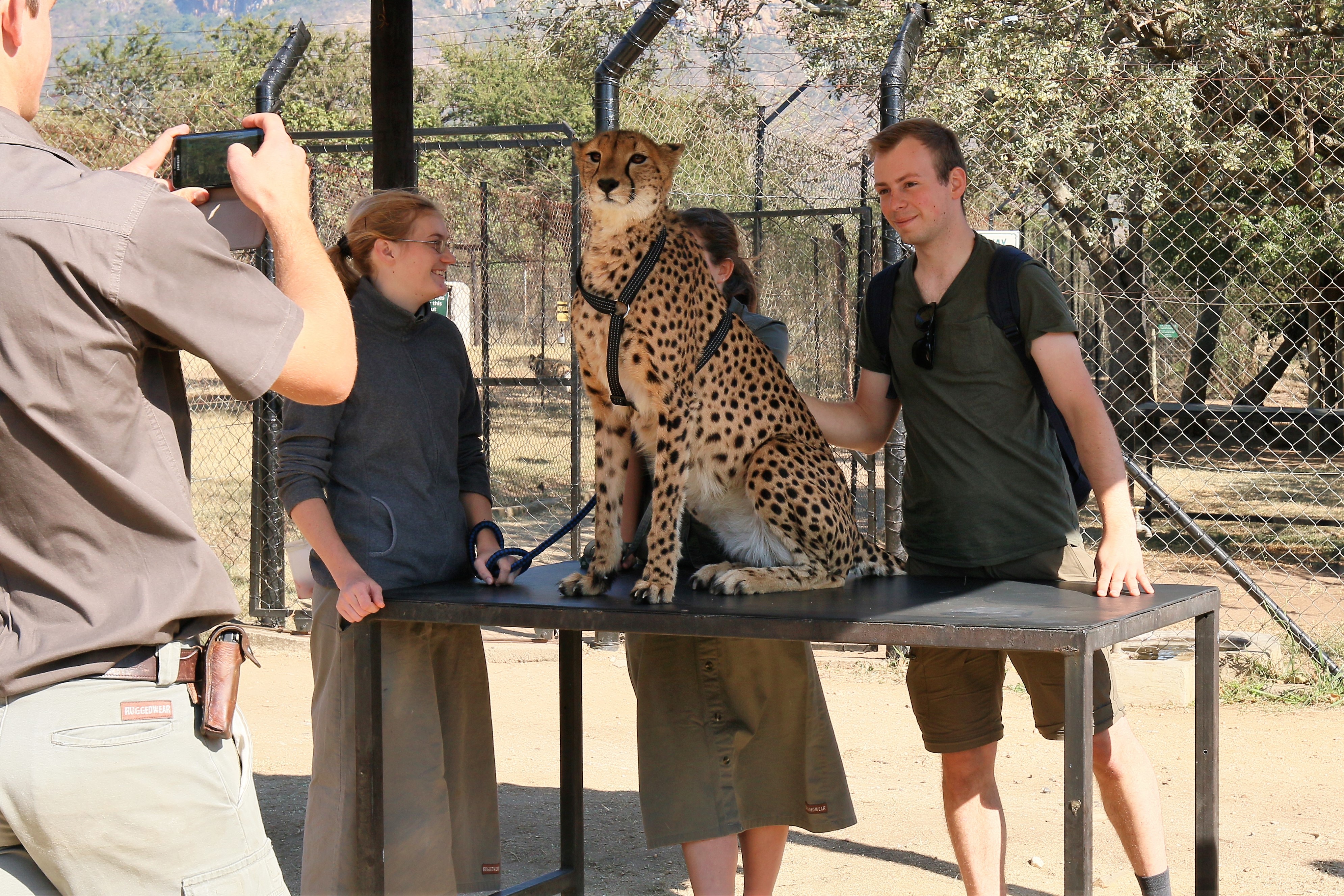
Cheetah petting. (Photo: Blood Lions)
“The fact that a number of facilities experienced repeat attacks shows that either measures are not put in place to prevent further attacks or that such health and safety protocols are insufficient,” says the report.
“We are unaware of any legal action taken subsequent to any of these predator attacks and have also not noted any facilities that have permanently closed after such attacks.”
These tragic incidents are preventable, says the report, through diligent management of the animals and tourists, as well as appropriate camp design. Tourists and staff should never be able to enter camps with large carnivores and there should be no opportunity for anyone to interact with large captive carnivores even through a fence (this was the second most common location for attacks when the person was trying to touch the animal or the animal was able to reach its paw through the fence and grab the person).
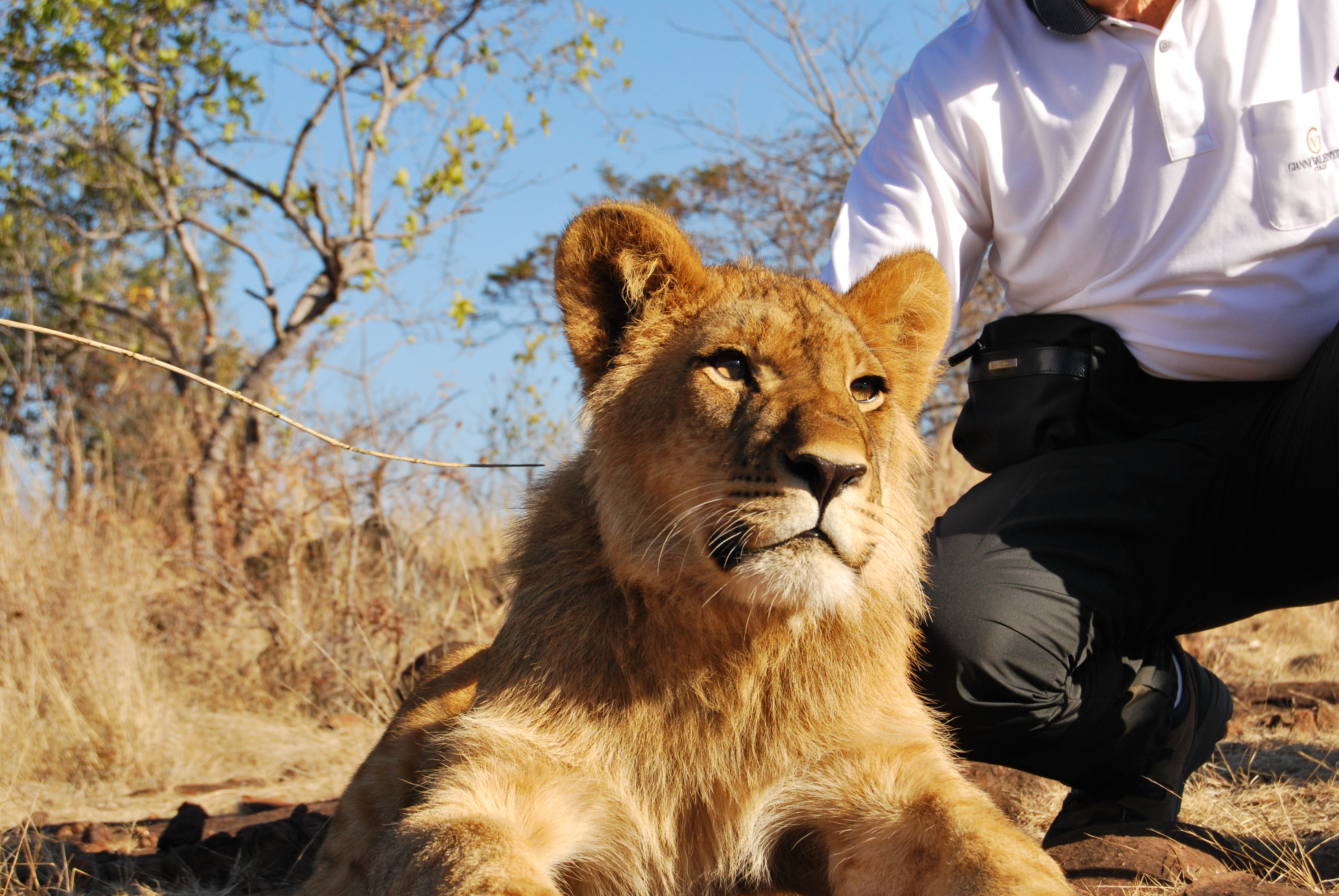
Walking with lions in Zimbabwe. (Photo: Blood Lions)
The problem, says the report, is that there are no regulations to protect the safety of tourists, staff and owners, who work and come into contact with captive carnivores. The onus, therefore, lies on the visitors and staff to ensure their own safety.
“We recommend that people who work at facilities (including ‘voluntourists’) investigate the working conditions thoroughly before taking up any form of work. If people need to be in the enclosure with the carnivores at any stage, the work opportunity should be re-evaluated.”
The report recommends that tourists never enter an enclosure with captive carnivores and don’t engage in any activity that involves physically touching a large carnivore.
It also encourages travel agents and tour operators not to book visits to such facilities in the interest of the safety of their clients and their own reputation. They should instead give preference to tourism ventures that focus on the conservation of large carnivores in the wild, where field guides are highly trained and regulated. DM
*Dr Kelly Marnewick is a Senior Lecturer at the Department of Nature Conservation, Tshwane University of Technology. She has been actively involved in carnivore conservation for over 20 years. Dr Louise de Waal is the campaign manager and director for Blood Lions. She has a long research background and now focuses on filling knowledge gaps around captive large felids.
To read all about Daily Maverick’s recent The Gathering: Earth Edition, click here.





















Perhaps it’s time that there were laws protecting the animals rather than the humans. Humans are not endangered or at risk ( unfortunately ) they don’t need protection, the animals do. When one considers the horrors of how humans treat animals one soon realises that human beings are what the planet needs less of.
At a tourist facility near here young foreign students act as guides and tourists are sold a package where they pet a cheetah and photos of the encounter are sold to them at a hectic price. The cheetah is kept on a leash and lying down.. but it’s one big cat. It doesn’t feel at all safe. It seems demeaning to the animals. I sense that the foreign students didn’t expect to be in a suburban mimi zoo either when they came to Africa and work with it’s big cats.
For guidance on which of South Africa’s 227 captive wildlife tourism facilities to support and which to AVOID, look up WildChoices.
Thank you highlighting the problem. Since its launch in March last year, the WildChoices Assessment Outcomes (WAO) has provided the only comprehensive list of captive wildlife tourism facilities in South Africa and their assessment outcomes against industry standards of sound ethics and good practices. The WAO serves as a voluntary guideline for the industry, empowering tour operators, destination managers, agents, and both domestic and international tourists to make informed decisions when choosing which captive wildlife tourism facilities to support. Additionally, facility owners can use the WAO as a benchmark to evaluate their own operations and implement necessary changes. Visit the WildChoices website for more information.